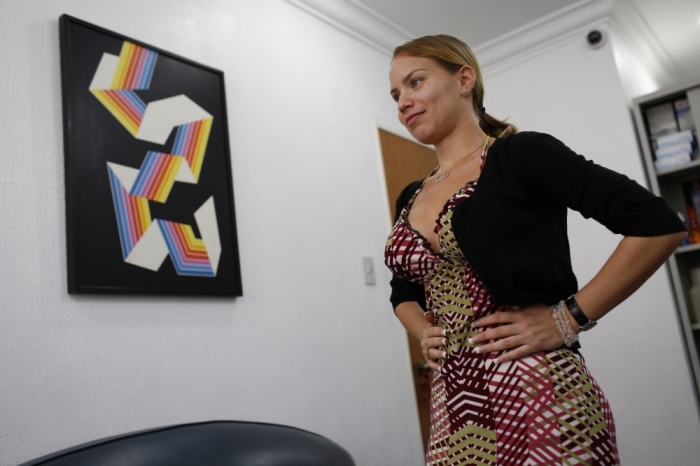Is Plastic Surgery a Sin? Doctor Argues 'Jesus Performed Plastic Surgery'

The chancellor of Bethlehem College & Seminary, who once served as pastor of Bethlehem Baptist Church in Minneapolis, Minnesota, for 33 years, believes that while taking pride in one's appearance is necessary, Christians should strive for "undistracting attractiveness," which he describes as the healthy balance between personal grooming and extreme cases of vanity and beauty obsession in a bid to glorify God.
"It's my eager expectation and hope that Christ will be magnified in my body, whether by life or by death, so we need to give enough attention to our bodies that we keep them fit for Christ and serviceable in His cause," Piper said.
"And we may need to give our bodies to imprisonment or whipping or execution or death to show that Christ is more precious than the body — so there is a middle way of eating and exercise that doesn't fall off the horse on the side of neglect of the body as though it were worthless or the side of idolizing the body as though it were God. It just keeps us healthy with a kind of, what I would call, undistracting attractiveness."
Dr. K.O. Paulose, an ENT plastic and laser surgeon with 38 years of experience, believes, however, that performing cosmetic surgery is actually doing God's work. He works at the Jubilee Memorial Hospital, a Christian mission hospital in India that serves the poor and he specializes in cosmetic surgery of the nose and ears.
"God is using me as an instrument of His healing ministry to fulfill His purpose," Paulose told CP in a recent phone interview.
He said that while some cosmetic surgery procedures might be considered unnecessary, the issue of plastic surgery is far more complex, particularly when you consider patients who have deformities or conditions that affect their health.
"Some radical Christians believe that God created you like this and therefore you should not change your face," Paulose said. "God is not going to look at the face of anyone, He is going to look at the heart ... that the heart is beautiful, not the face."
He asserted that Jesus Himself performed plastic surgery on a soldier in Gethsemane on the night of His betrayal.
"Jesus performed plastic surgery the night before he was crucified. All the soldiers came and Simon and Peter cut [off a soldiers ear]. What Jesus did [is] he put it back (John 18:10)," he said.
"If you do plastic surgery for vanity, then of course it can be considered unnecessary. But if a patient has a crooked nose and cannot breathe, I think we should do rhinoplasty. If a child wants a tongue tie wound corrected, we'll correct it. We have to take decision after discerning. Some of these Christian radicals — what about putting on makeup? Then you should not wear makeup also, no? You shouldn't put on makeup; you shouldn't cut your hair or nails, right? I think it is absurd."
Paulose is not alone in his views on cosmetic surgery, an industry that Americans spent more than $12 billion on in 2014 and where females make up more than 90 percent of patients.
California model Carrie Prejean, 28, the former Miss California USA who made headlines in 2009 when she was stripped of her crown due to alleged breaches of contract, is among Christian women who have happily embraced the cosmetic surgery trend because, according to her, the Bible does not condemn it.
"No, I don't think there's anything wrong with getting breast implants as a Christian," Prejean, noted in one news report. "I think it's a personal decision. I don't see anywhere in the Bible where it says you shouldn't get breast implants."
The church has rarely spoken out as a final voice on cosmetic surgery, but in January the Vatican openly condemned vanity-motivated procedures such as breast implant surgeries and tummy tucks in a document titled "Women's Cultures: Equality and Difference," calling it "aggressive toward the feminine identity."
The document warned against elective cosmetic surgery, saying, "plastic surgery that is not medico-therapeutic can be aggressive toward the feminine identity, showing a refusal of the body in as much as it is a refusal of the 'season' that is being lived out," the authors wrote.
According to the report, which was created by a panel of women for the Vatican's Pontifical Council for Culture, one woman told the authors that "plastic surgery is like a burqa made of flesh." A burqa is a traditional outer garment often worn by some Muslim women in public to conceal the body.
Plastic surgery can "'amputate' the expressive possibilities of the human face which are so connected to the empathic abilities," the document states. "If the body is the place of truth of the feminine self, in the indispensable mixture of culture and biology, it is also the place of the 'betrayal' of this truth."




























